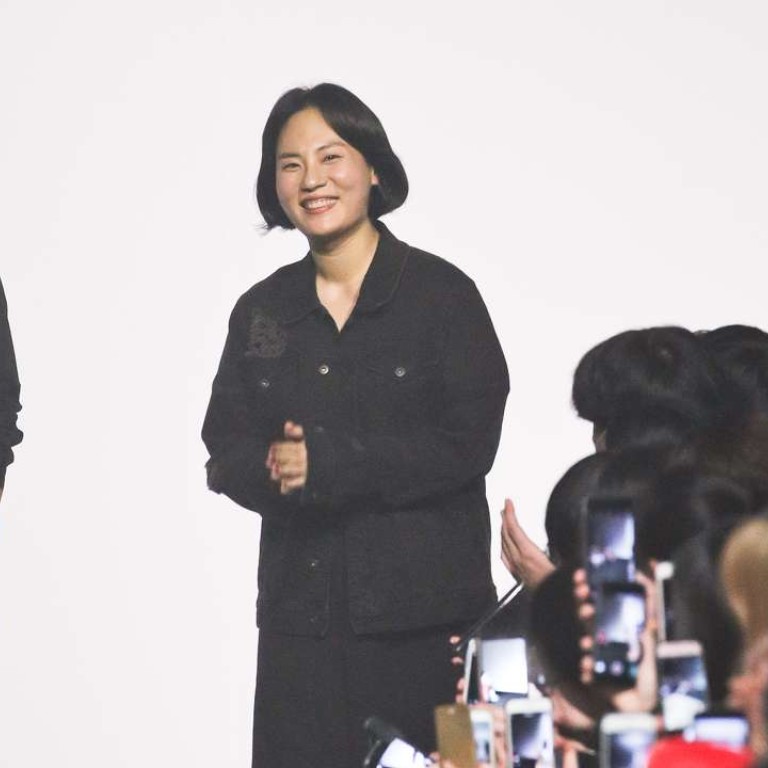
South Korean fashion industry fears slump from fall-out over rocket system
Big drop in Chinese buyers at Seoul Fashion Week suggests China-South Korea tensions over anti-missile system that has hit Korean retailers, K-pop and tourism could dent K-fashion’s popularity
Could Korea’s booming fashion industry be the next victim of tension between China and South Korea over Seoul’s planned deployment of an anti-missile rocket system to counter the threat of a North Korean attack?
The number of Chinese buyers at Seoul Fashion Week this month was down by half from 2016, and one of those who did show up, Ivan Chan, suggested the Chinese fashion industry had changed strategy and was “steering away from K-fashion”.
However, Jinwoo Choi, one half of the design duo behind popular Korean fashion brand JKoo, said despite initial concerns, Chinese buyers are still supporting his award-winning designs.
The fashion industry is worried because it has seen the impact of Beijing’s de facto, albeit unofficial, ban on most things South Korean over the planned rocket deployment, which it sees as a threat to China’s security. Korean stores and restaurants have seen a big drop in business, K-pop concerts, celebrity appearances and fan meet-and-greets in China have been cancelled, and Korean dramas, talk shows and entertainers have gone off air and have disappeared from online viewing platforms such as iQiyi and Youku (hit drama Guardian: The Lonely and Great God, starring top romantic male lead Gong Yoo, was among those affected). The production of a film starring Korean actor Ha Jung-woo and Chinese actress Zhang Ziyi was shelved.
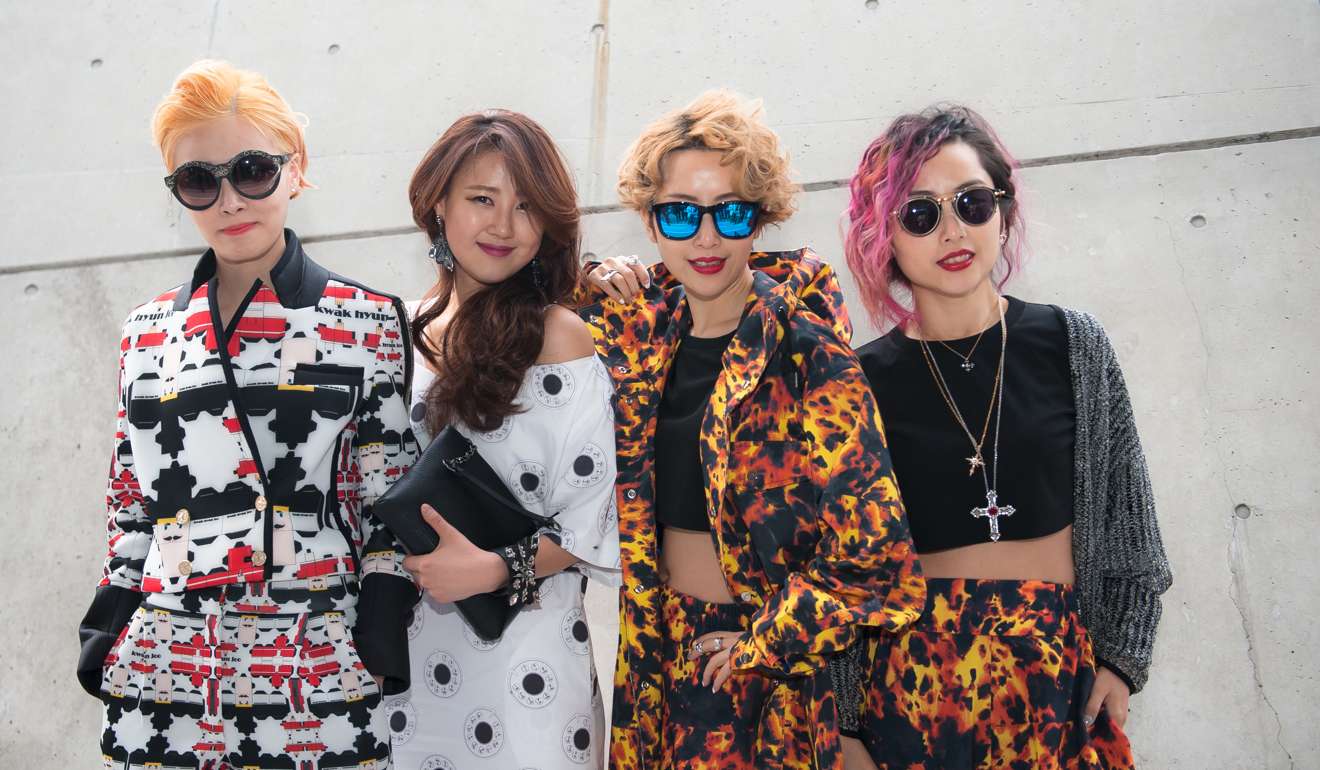
In March South Korean media reported that Chinese government officials had given verbal guidance to tour operators in China to stop selling trips to South Korea, while more than 3,000 Chinese tourists refused to leave their cruise ship and set foot on the Korean island of Jeju.
South Korean fashion has arguably been Asia’s biggest trend leader over the past decade. Korean fashion brands are often featured in Korean dramas and movies and worn by K-pop celebrities at concerts and events.
“Right after the airing of each drama [in China], [online shopping site] Taobao would feature ‘hot items’ from different looks featured in the drama,” said Jessie Xie, a fashion buyer for Chinese brand Le Beau. “If one drama is showing in China, all the looks the actors are wearing, viewers will copy them exactly.The clothes they wear become hot items for maybe two or three months.”
In 2014, hit drama My Love From The Star featured actress Jun Ji-hyun wearing a pair of sparkly grey Jimmy Choo shoes; the style sold out in China and Seoul within days of the episode airing, according to The Wall Street Journal.
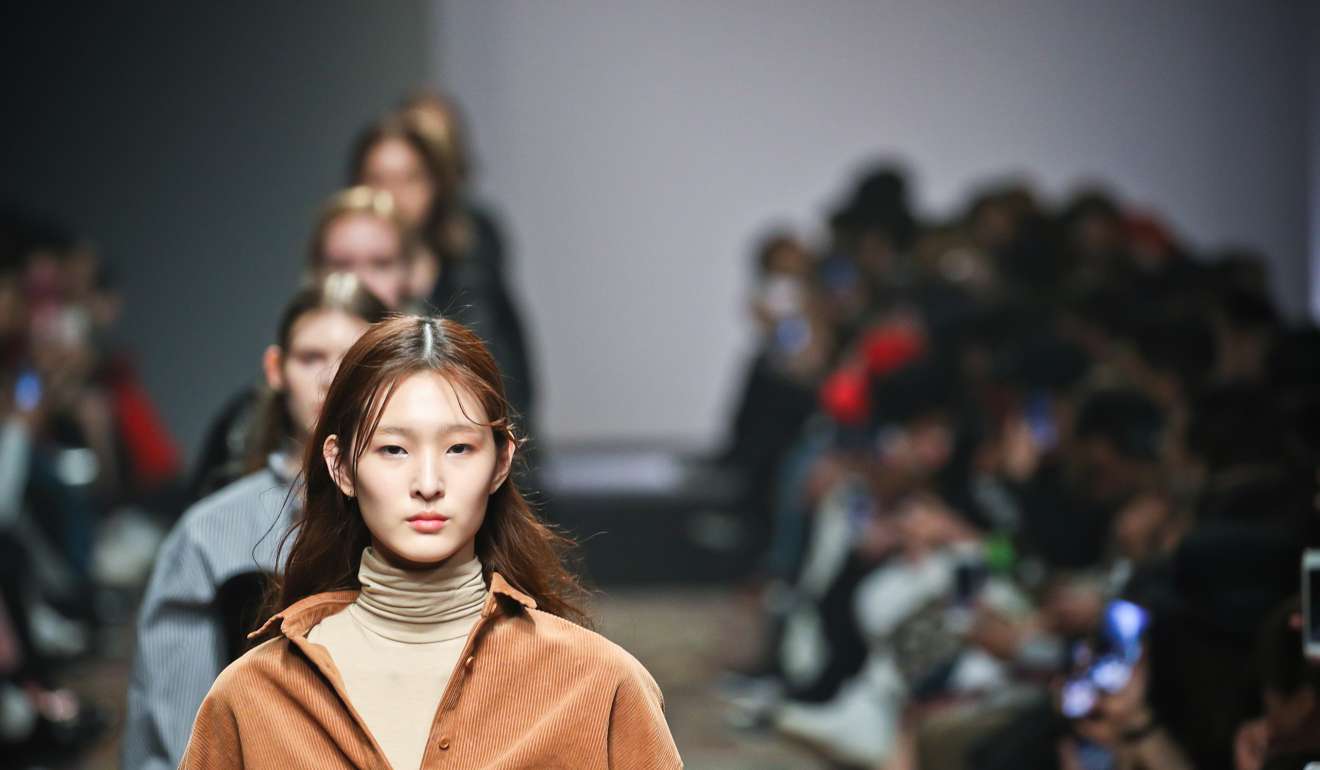
Many Korean fashion brands have successfully exploited Asian interest in K-pop and Korean popular culture for marketing purposes.
I hope business will not be affected too much, but we don’t know. It’s not anything we can control
The absence of many Chinese buyers was felt at Seoul Fashion Week. While the event at the Zaha Hadid-designed Dongdaemun Design Plaza had some great shows, it was more subdued than in recent years – and no wonder, given that in previous years 60 per cent of overseas buyers at the show came from China.
Chan, chief executive of Chinese fashion brand Duier, said: “Most, if not all, major Chinese media, celebrities and buyers were absent from this season’s fashion week. This signified a change of strategy by the Chinese fashion industry, steering away from K-fashion.”
Duier, which has often collaborated with Korean fashion designers, chose not to participate in any shows at Seoul Fashion Week this season to express its support for the Chinese government’s stance on Seoul’s planned deployment of the US-made Terminal High Altitude Area Defence (THAAD) anti-ballistic missile system. “It is more civil behaviour than the Chinese government’s official strategy,” he said.
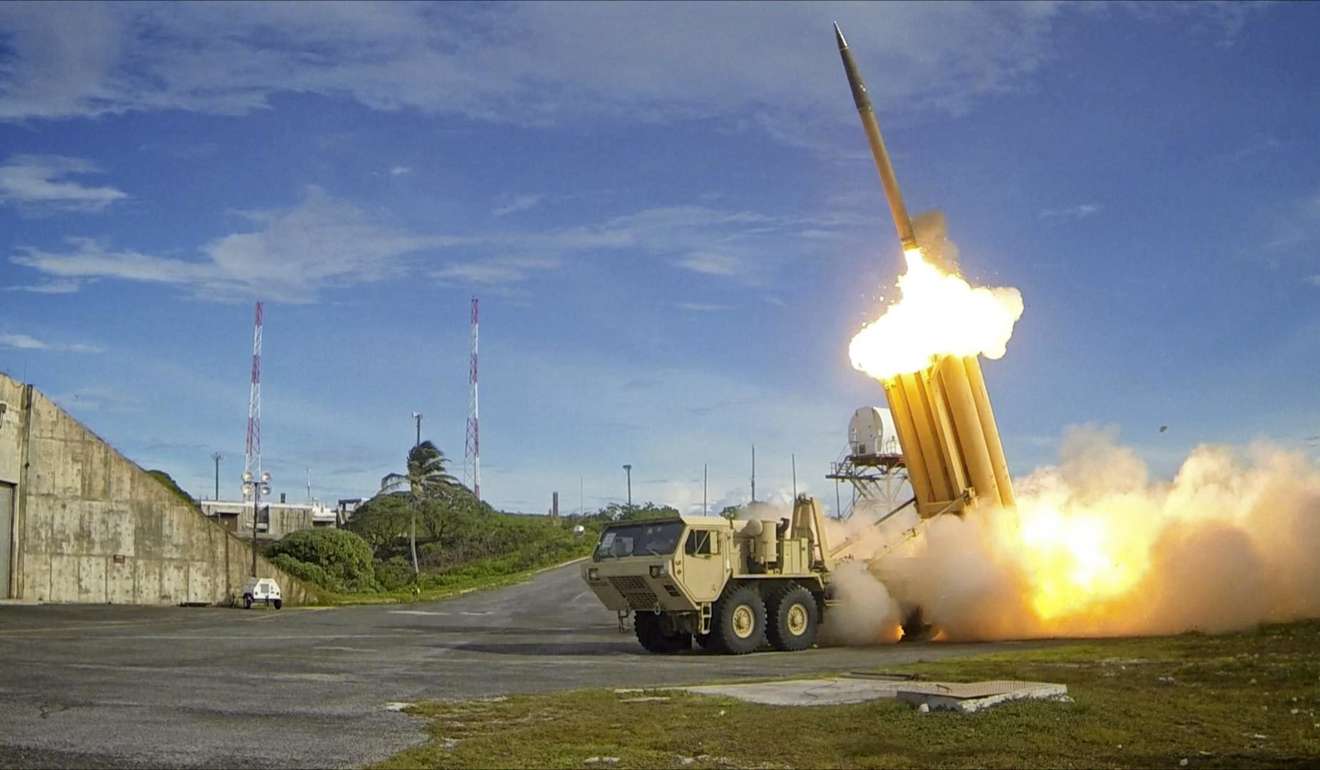
Chan added: “We didn’t get any prohibition by the Chinese government on sourcing South Korean merchandise.”
He believes Chinese retailers who specialise in K-fashion can continue doing business by working with Chinese consumer influencers. “The [THAAD] situation won’t have too much impact on Chinese brands,” Chan said. “[They] have already developed their own celebrity marketing or KOL [key opinion leader] channels by promoting Chinese influencers. [For the moment] they may simply switch to using Chinese KOLs instead [of Korean KOLs].”
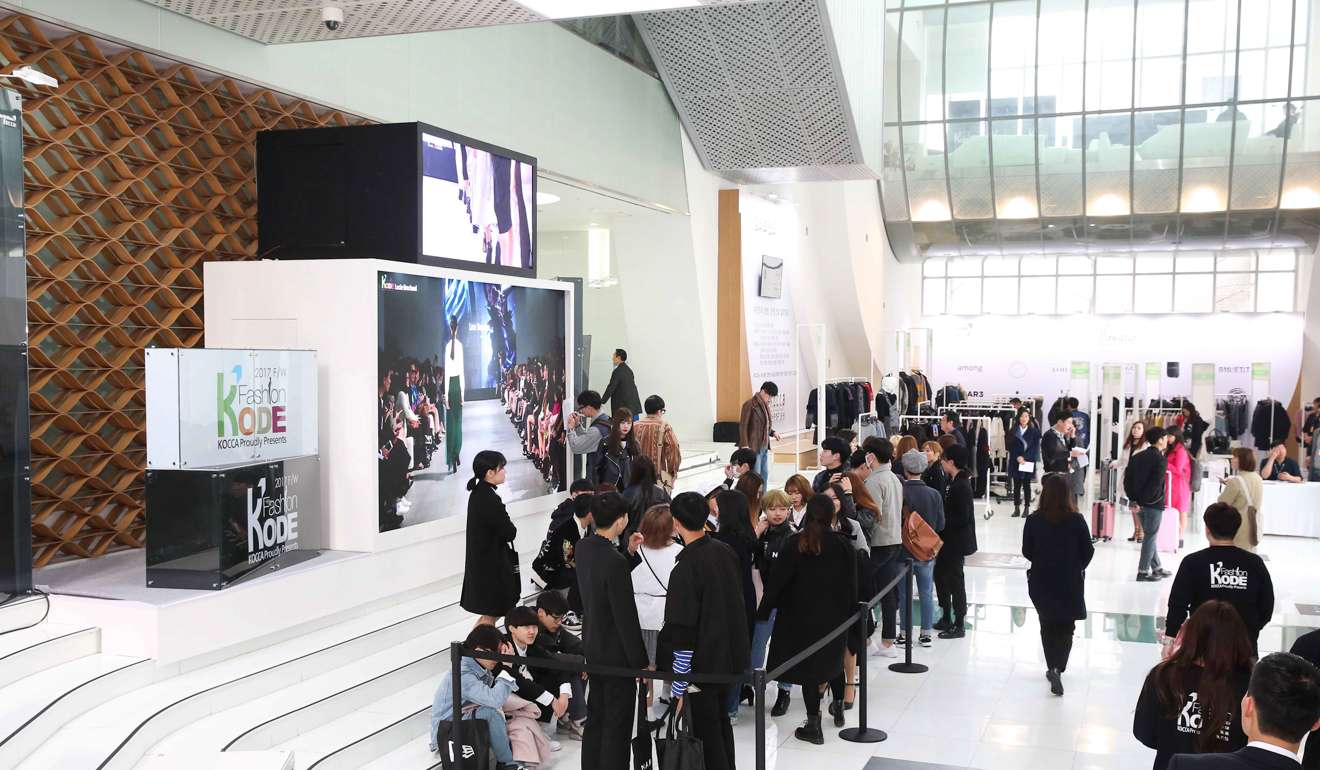
Xie, buyer for Le Beau, said: “Some of my [retail] clients are still working with Korean celebrities. I hope business will not be affected too much, but we don’t know. It’s not anything we can control and we don’t know how the policy will go later on.”
Xie was in Seoul to attend Fashion Kode, a government-organised trade fair that takes place at the same time as Seoul Fashion Week, and also watched a few of the fashion shows.
“For us it’s okay to attend. We are not KOLs and we are not fashion bloggers. Those people would have had to promote themselves during fashion week, so it is not good to come now [amid the fuss over THAAD] because they will show up on social networking services. Nobody knows who I am so it’s OK to visit.”
Jinill Kim, an economist at Korea University, said: “Korean brands should find a venue [to do business] that is not controlled by the Chinese government. Chinese consumers could buy directly from the Chinese version of a Korean website, though it may be less convenient for them than using a website based in China.”
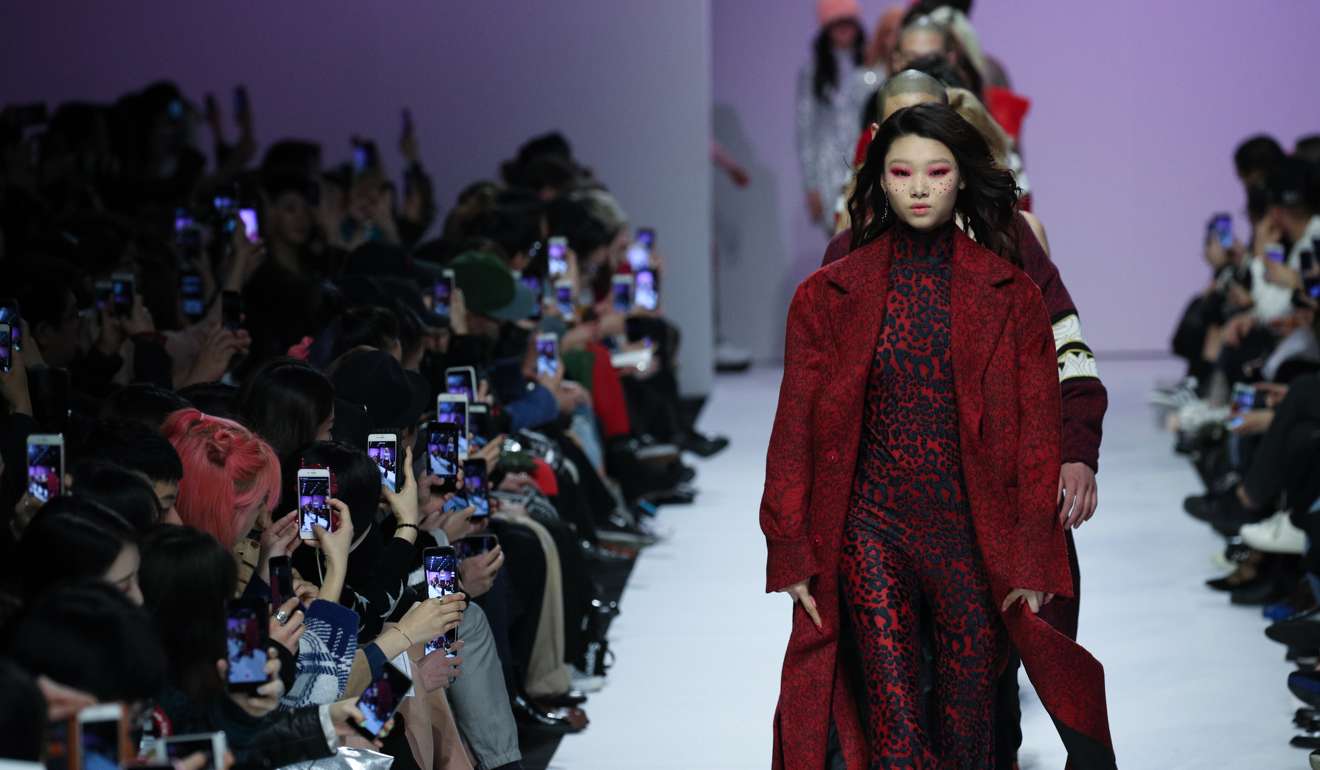
Choi, the fashion designer for JKoo, said he hadn’t felt affected by tension over the THAAD deployment. But he acknowledged that the “China market is still very important”, and is aware that Korean fashion brands will have to diversify and not just depend on Chinese buyers and consumers. “My main market is Asia, especially China. I think after this season, I really have to expand my brand to the US or Europe. I think I need to find another opportunity there,” he said.
Kuho Jung, a veteran Korean designer and executive director of Seoul Fashion Week said he and his team did their best to run the event as usual.
“In Korea, a lot of people are against THAAD, but it’s a situation that is over our heads,” said Jung. “We try to work hard [to overcome this], but the situation is very sensitive. As you know, this is not only a matter for Korea and China, it is a matter for the USA and China. We are the shrimp between two big whales.”

